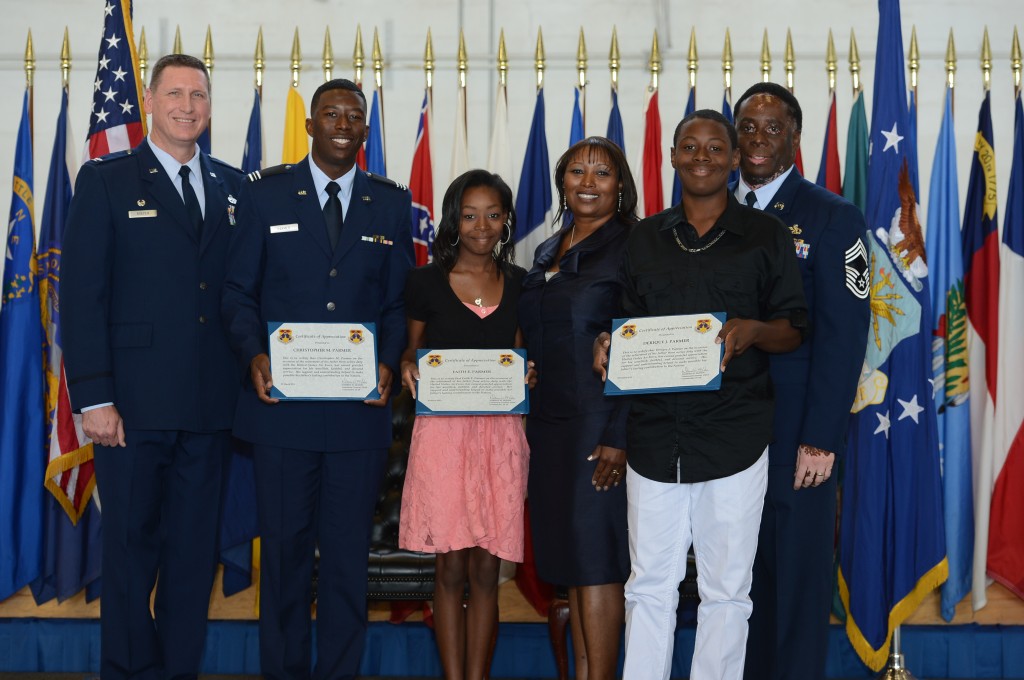For retired Air Force Sgt. Greg Parmer, having a K-8 charter school at MacDill Air Force Base in Tampa, Fla., would give military families more and better options for middle school.
For Amanda Madden, who lives on the base with her husband, a technical sergeant, and two sons, such a school would also be an opportunity for something better at the elementary school level.
“I’m more trusting of a school on base as opposed to a public (district) school,” she said.
Quality, convenience, a better fit for military families – supporters of a proposed charter school at MacDill have raised those points repeatedly in recent months as one of the best-known military bases in the country squares off against one of the nation’s biggest school districts. But conspicuously absent from the debate has been the voices of military families themselves.
In interviews with redefinED, Parmer and Madden echoed many of the concerns that other supporters have already raised. At the same time, they offered more detail about frustrations they say led them – and perhaps other military families – to consider the possibility of a charter school.

Greg Parmer, far right, poses with his family and Col. Barry Roeper, far left, recently at MacDill Air Force Base. Parmer is among supporters of a proposed charter school on the base. PHOTO provided by family.
“Most of our families live in Brandon and Riverview (on the other side of town),’’ said Parmer, a father of three who lives near the base. Having a K-8 on base would be a huge plus for them, he said.
The proposed MacDill Charter Academy would serve up to 875 students and is being considered as the base expands housing to accommodate 600 new families. The Hillsborough County School Board voted down the academy application in December, citing problems with the school’s governing structure and other issues. But the school’s backers have appealed, with the state Charter School AppealCommission set to consider the matter on Feb. 24.
Parmer’s concerns focus on middle school options.
MacDill families have few complaints about Tinker Elementary, the A-rated elementary school that’s run by the district on base. But there is some grumbling about Monroe Middle School, which is near the base and earned a C grade from the state this year.
Parmer said he and his wife, Kimberly, who works as a secretary on the base, weren’t necessarily expecting a private-school atmosphere when they learned their daughter and son, and a nephew who lives with the family, would attend Monroe in 2011. But the school turned out to be culture shock for the Parmer kids, who had gone to U.S. Department of Defense schools in Germany and Japan.
“For my two kids, this was their first experience in a public school with other kids with varied levels of income,’’ said Parmer. He recalled his son confiding in him one day after school, “Dad, I’ve heard more cussing today than I have ever in my life.’’
There were frequent fights and, at least once a week, all-out brawls, Parmer said. “We were worrying about their well-being,” he said of his children.
Things got better after parents united and met with district officials about the problems, Parmer said. A new principal came on board and spurred improvements.
Now, Parmer’s 15-year-old son, Derique, and 14-year-old nephew, Cameron Jones, attend an A-rated public high school, while his 13-year-old daughter, Faith, remains at Monroe. Parmer said he tried to get her to move to a new school, a possibility through the district’s many choice schools. Transportation was a factor. But after three years at the same school, a rare stretch for most military kids, Faith really didn’t want to leave her network of friends.
Parmer said he doesn’t know much about charter schools, and isn’t sure they are better than district schools. But he said had there been a charter on base when his daughter was a sixth-grader, it would have been the first choice.
It would also be the top choice for Madden. Her sons are at Tinker now. Nicholas, 8, is a second-grader and Alexander, 10, is in the fourth grade.
They were happy there until this school year, Madden said. That’s when Nicholas was moved into a class with a teacher who didn’t meet Madden’s expectations. She complained to administrators, but didn’t feel the situation was resolved. She went to a base supervisor, but he told her there was nothing he could do.
Maybe if the base had its own charter school, there would be more options for parents reaching out for help, Madden said.
She also likes the idea of having a school that caters to her children’s special needs, like the DOD schools they attended on other bases. When their father was deployed to Afghanistan, those schools offered special programs and counseling for the kids, she said.
Like Parmer, Madden shared concerns about the quality of the nearby middle school. She said she would like to keep her boys on base once they get to middle school, since her husband works days while she works nights across town. It would be yet another way to bring more continuity to their lives.
“We all come from everywhere,’’ Madden said. Having a school that serves mostly military kids would help give them a sense of place, she said.
Correction: The charter appeal goes to the state Charter School Appeal Commission before it is heard by the Board of Education. A previous version of this story was incorrect on the order of meetings.